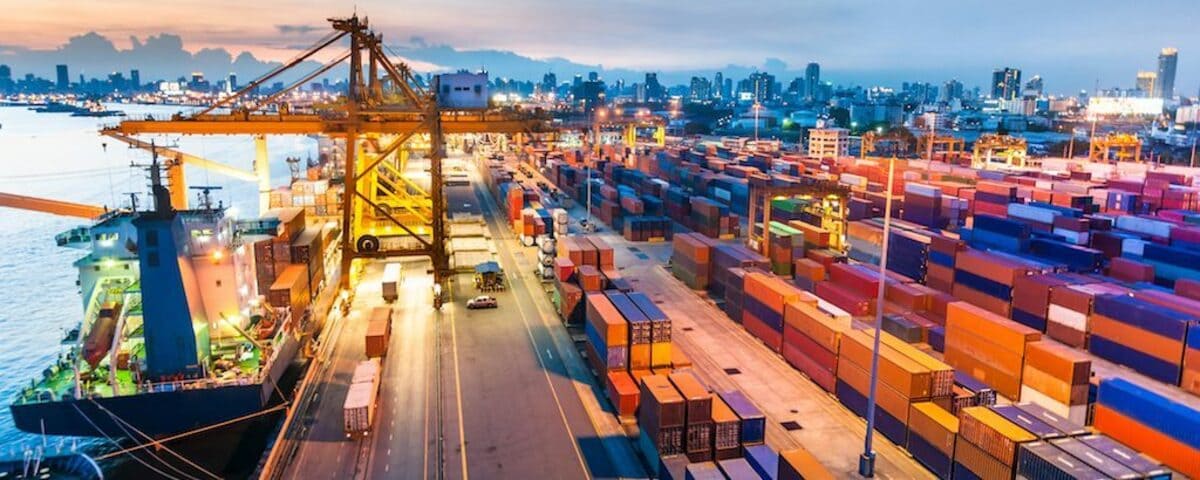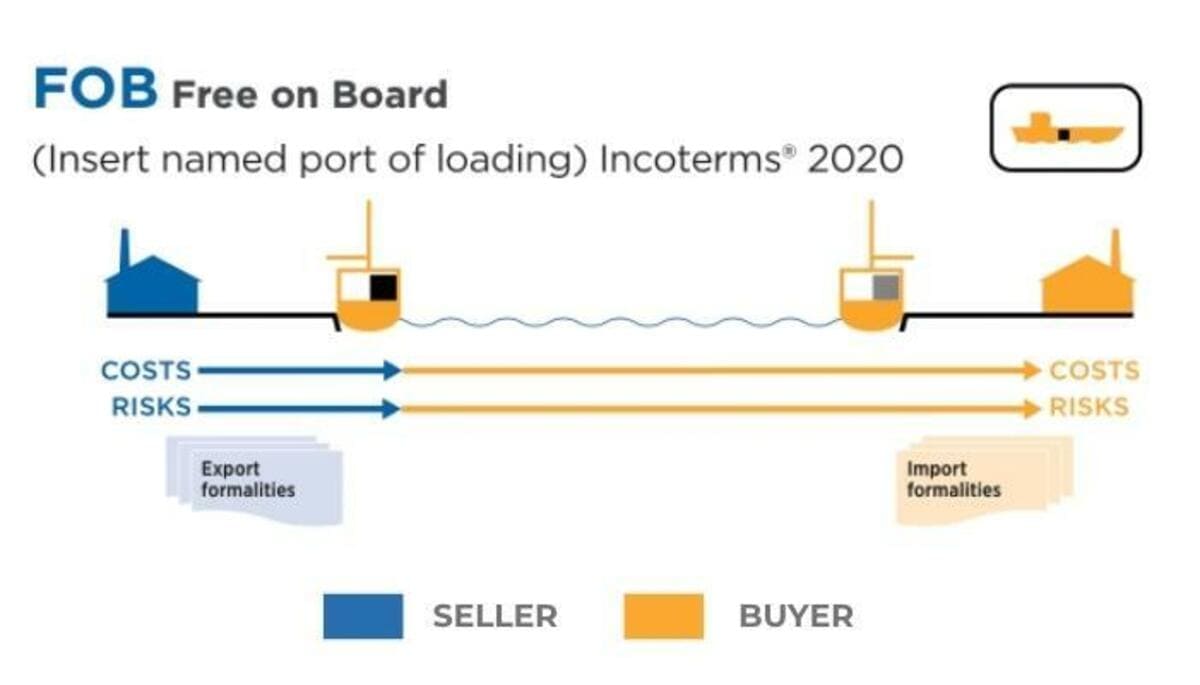
Incoterms rules determine who (the seller or the buyer) is responsible for transportation, insurance, customs clearance and the risk of loss or damage to the goods and until what point. In this article, we talk about Free on Board (FOB) delivery terms.
FOB ("Free on Board") is an Incoterms term used for sea transportation. According to the FOB terms, the seller is responsible for delivering the goods on board the vessel specified by the buyer. From that moment, all transportation risks and responsibilities are transferred to the buyer.
Let’s say you order goods from China. Under FOB (Free on Board), the seller delivers the goods to the port and loads them onto the ship, after which all costs and risks are yours. Under DAP (Delivered at Place), the seller handles the entire delivery process, and you only pay for customs clearance. In DAP, the supplier is responsible for loading and unloading, insurance, finding the vessel, and processing all documents. DAP services are more expensive than FOB because they include indirect costs.
Understanding FOB Incoterms helps buyers and sellers clarify responsibilities and conduct deals more safely and transparently. Note that this model only applies to sea cargo delivery.
| Criterion | Seller | Buyer | Brief explanation |
| Vessel provision | ✖ | ✓ | The buyer charters the vessel and provides the seller with the ship’s name and time of arrival. |
| Delivery to port | ✓ | ✖ | The seller is responsible for transportation to the port. |
| Loading on board | ✓ | ✖ | The seller arranges and pays for loading. |
| Transfer of risk | From the moment the goods pass the ship’s rail. | ||
| Export clearance | ✓ | ✖ | The seller prepares documents, export licenses, and pays export duties if required. |
| Freight payment | ✖ | ✓ | The buyer arranges and pays for freight. |
| Import clearance | ✖ | ✓ | Fully the buyer’s responsibility (however, the seller must provide export documents). |
| Insurance | ✖ | ✓ | At the buyer’s discretion. |
| Unloading at destination port | ✖ | ✓ | The buyer arranges and pays for unloading. |
| Door delivery | ✖ | ✓ | Handled by the buyer. |
Responsibilities of the supplier:
Once the cargo has boarded the ship, all costs and responsibility for delivery are borne by the buyer.

Distribution of costs and risks between the seller and the buyer when using FOB terms for the delivery of goods
Thus, the seller can freely choose a forwarder whom he trusts and minimize possible risks in the process of delivering the goods.
Changes to the FOB Incoterms were made in 2020. The main points that differ from the 2010 version include:
Since the introduction of Incoterms 2020, several years have passed, and the updated rules have demonstrated their effectiveness in international trade.
FOB terms of delivery require the buyer to actively participate in logistics processes and customs formalities, so his experience and knowledge are of great importance. In general, FOB is suitable for:

Thanks to well-established logistics and control over the transportation process, the buyer can optimize the transportation route, reduce delivery time and costs
Large batches of goods. The purchase of large lots allows you to scale logistics processes and reduce the cost of delivery per product unit.
Importantly. FOB may prove to be a difficult and unprofitable option for buyers without experience of cooperation with international suppliers or for small batches of goods.
If you want to work under FOB Incoterms, consider the following aspects to reduce risks:
FOB is convenient if the buyer has experience in international shipping and verified logistics partners.
Although FOB Incoterms is considered a convenient option, it has its pitfalls:
A typical situation under poorly arranged Incoterms: a company ordered a batch of furniture from China under FOB terms. Due to delays in export documentation, the cargo missed the chartered vessel and remained in the port. The buyer pays demurrage and loses the reserved space on the ship.
It is essential to clearly understand the FOB Incoterms conditions — from areas of responsibility to all the documents each party must prepare.
To minimize risks under FOB Incoterms, follow these recommendations:
Before choosing delivery terms, we recommend analyzing your needs, experience, resources, product specifics, and market characteristics.
If you need international cargo transportation, DiFFreight is a reliable logistics partner for your business. We organize procurement and delivery of goods from China on a turnkey basis, we offer our customers our warehouse in China, pay local costs in the destination country, handle import customs clearance and duties, and deliver your cargo directly to your door.
FOB (Free On Board) means the seller delivers the goods on board the vessel at the port of shipment. Once loaded, all risks transfer to the buyer.
After the goods are loaded onto the vessel, the buyer pays for the sea freight, insurance, and onward delivery to the final destination.
FOB allows the buyer to control the shipping process, select their preferred carrier, and potentially reduce transportation costs.
Under CIF, the seller pays for freight and insurance to the destination port, while under FOB the seller’s responsibility ends once the goods are on board — all risks then pass to the buyer.